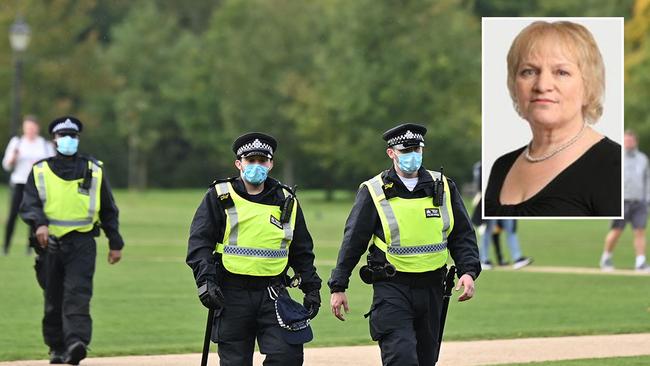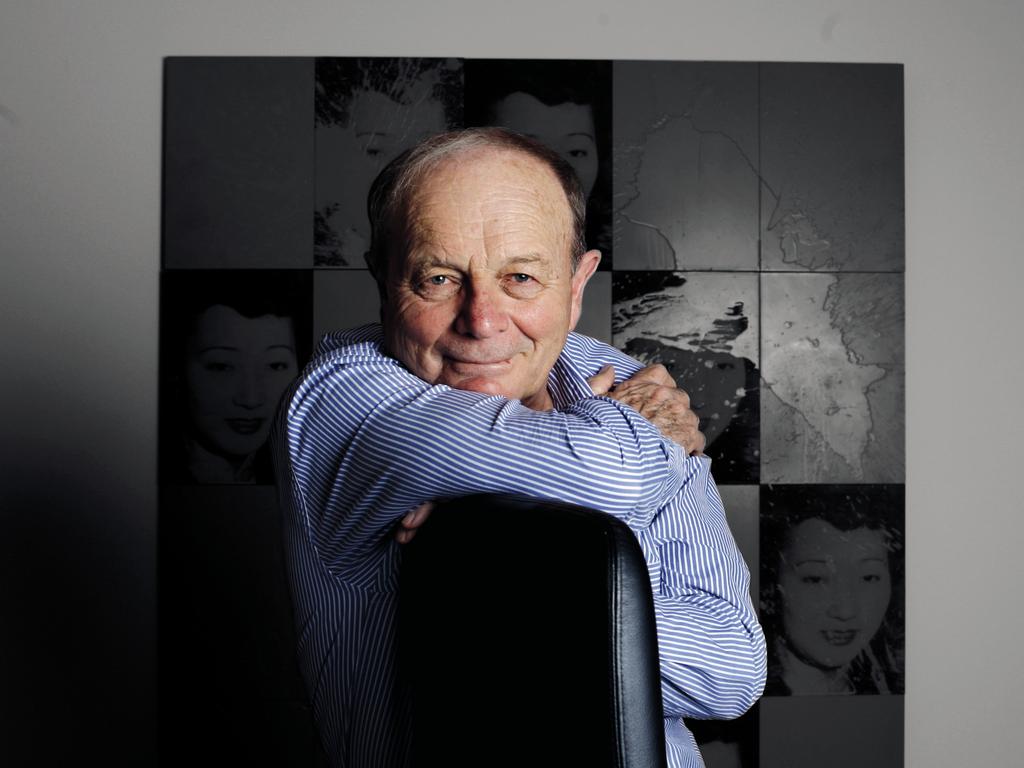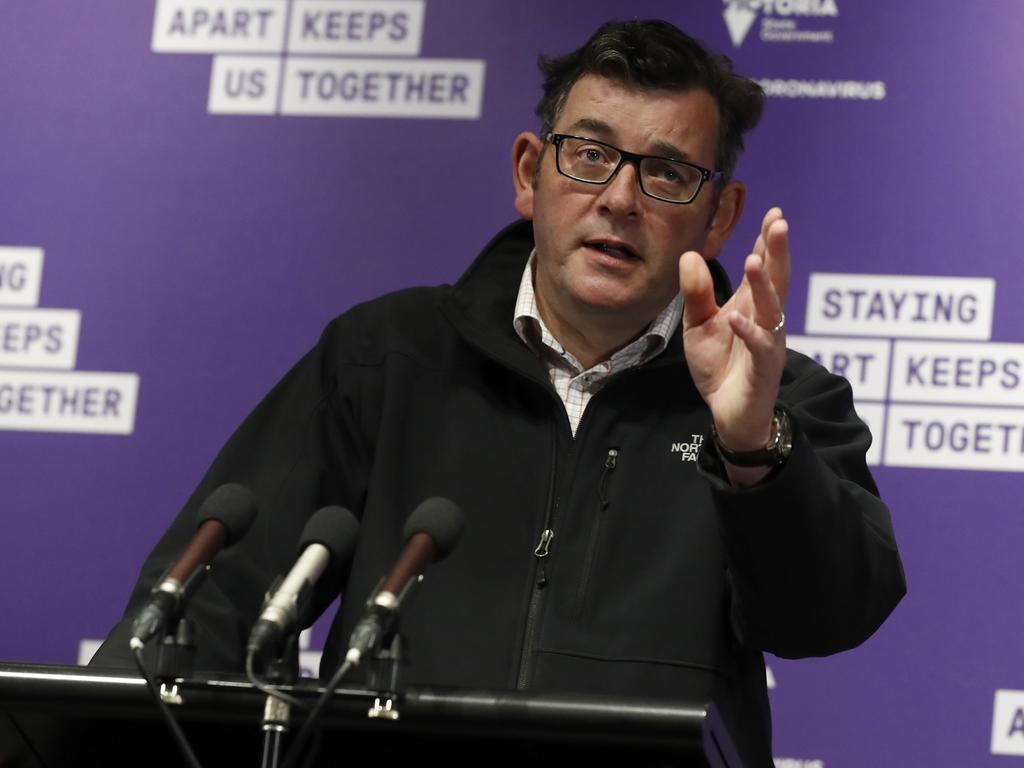Coronavirus: Covid is not the only killer — I should know
A brush with cancer amid Covid offers a stark reality: We can’t cower afraid and compliant. If we really care for our countrymen, we need a chip of icy realism.

Maybe there will be a vaccine. Maybe it will work. Maybe instant spit-tests will moonshot into reality, so that every workplace, cafe and venue can guard its doors. Maybe Baroness Harding will actually succeed at something. To hope for all this is sensible but to trust it is not. It is time for laypeople, non-scientists, to ask simple questions.
Faced with such uncertainty, does it make sense to cling to a single, visibly enfeebling tactic? Is it logical to fiddle with restrictions on liberty every few weeks, treating a country like a faulty Wi-Fi router to switch off and on again? How humane is it to reduce (temporarily) the circulation of one virus by causing unemployment and ruin and mental stress, impoverishing national culture and confidence? Is it even medically clever, once you’ve built vast new hospitals, to sideline other death-dealing illnesses? Where’s the virtue in cancelling ordinary operations and screening, and creating psychological and practical barriers to primary care?
I shudder at that last effect because – small example – last November a particularly alert GP took interest in a small lump by my ear. I had dismissed it as a swollen gland but obediently if grumblingly reported for biopsy. Thence, surprised but grateful, to 18 weeks’ intense chemotherapy for a rapid aggressive lymphoma that would have finished me off. I’m clear. I might not have been, in Covid-world; many people with diagnosed cancers have had their treatment delayed months, and some have died. Even now, plenty of dutiful citizens will be reluctant to “pester” their GP for online triage, still less insist on being examined. Some will “protect the NHS” and wait too long.
Consider too the mental state of a nation cavalierly told of at least another six months’ restriction. Domestic violence calls have grown, families have become alienated, livelihoods have been destroyed. Eight million people live alone, many working at home. Loneliness has its own ways of killing, and so does agonising financial dread. Expect suicides. Past experience threatens other dark things: an intense and unnatural online life, with few workaday human contacts, is fertile ground for terrorist delusions: hard right, Islamist or plain mad.
All this economic and personal damage is insufficiently challenged. Only a few brave scientists are willing to be sneered at on Channel 4 News or BBC Radio 4’s Today (Monday) program as stooges to “hard-right billionaires” for signing the Great Barrington declaration, the most overt challenge to the mantra of restriction. Yet the virus has shown its limitations as well as its undoubted nastiness: medicine has better treatments than in March, and understands the need to monitor blood-oxygen levels early. The mortality rate is around 0.5 per cent, mostly among the very old.
The average victim is 82.4 years old: only months apart from normal life expectancy. Even over-80s are more likely to recover than to die, and elsewhere the disease is most often mild or without symptoms. Whenever there’s a rise in positive tests (often because of a local student influx) some sage from Sage will call it “grim” but nobody mentions that plenty of those “cases” are never ill at all and only one in a thousand seriously so. Rather there is chin-stroking about the globally tiny minority whose weariness lasts some time after recovery and is fashionably defined – before any rigorous analysis – as “long Covid”.
TV newsmen hang out in PPE near the beds of the sickest, and interview the most stressed NHS workers they can find, as if it were the March peak. It isn’t: as of last week there were 5,608 Covid-19 patients in UK hospitals, just over a tenth of them on ventilation.
Any death is a deep sadness but it does not help to shudder and cower, afraid and compliant, or to stoke up indignation as if government held the key to immortality. Hate me for this but if we have any real care for the mass of fellow countrymen we need a chip of icy realism in our hearts.
I am 70, moving towards the universal endgame and technically “vulnerable”. Losses and deathbed vigils are not unfamiliar to me. I love or revere some very old people and will gladly mask and distance for their sake. But I reject sentimental wails of “Don’t you care about my Granny?” from those who think it is OK for well-padded authorities (and their equally secure bleeding-heart cheerleaders) to close down normal life, trash precarious livelihoods and deny the healthy human thirst for occupation and travel and assembly.
Besides, they forget that if the economy really tanks there won’t be much of an NHS anyway.
Freedom is precious to the young with lives to build and things to learn, to the middle-aged who need security and a home for their children, but also to some who, elderly or frail, prefer not to spend their last years “shielding”. If they do want to hide while “herd immunity” slowly builds, fine.
The lockers-down claim it is unfeasible to help them but if the rest of us resumed (with a bit more handwashing) our previous work, hospitality, arts, sports, travel and friendships, then public money would be saved and more returned through taxes.
Redirect that to generously housing, feeding and supporting those who do want to shield. Subsidise willing family carers and tested volunteers to shelter alongside them if needed. Is that impossible?
A year ago we’d have thought it impossible for the state to pay millions of people to do nothing and stay in all day. But look how horribly easy that proved.
The Times







To join the conversation, please log in. Don't have an account? Register
Join the conversation, you are commenting as Logout